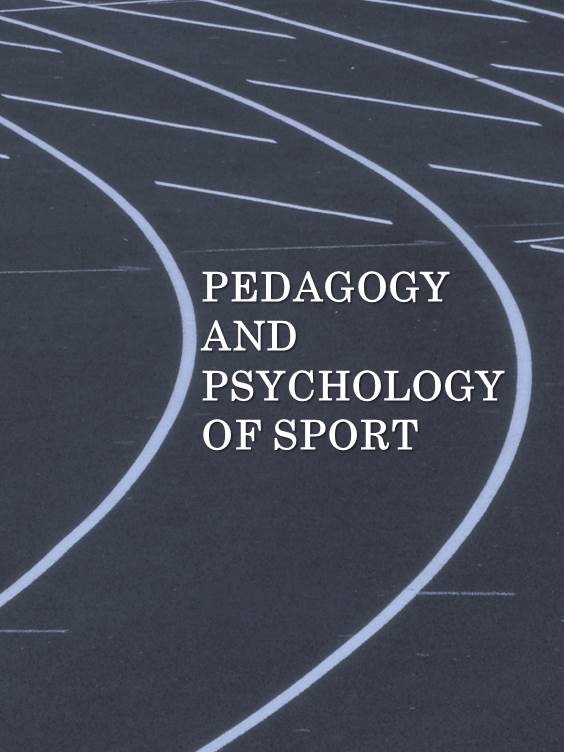Development of medical education in the context of european integration
DOI:
https://doi.org/10.12775/PPS.2025.22.60879Keywords
human health protection, quality of higher medical education, teacher self-education, quality of teachingAbstract
European countries are united in their views on the value of human life, education, and healthcare through intellectual, cultural, and social proximity. Human health is the most sensitive issue for different population segments and is often exploited by political forces to create social instability. The European Union is a complex structure that unites member countries with their long-established views on healthcare. An important innovation of today is the introduction of digital technologies into the healthcare system. The events of recent years (pandemic, economic instability, war) have exposed the heterogeneity of European countries' economic and technological levels and changed the proportional possibilities of individual states' contributions to a single system. To create a single, coordinated intellectual space, it is necessary to create a single level of quality of higher education in the countries participating in this space. Strengthening cooperation between Ukrainian scientific and industrial organizations with their partners in the EU, expanding the research space, will serve as an incentive for Ukrainian scientists not only to comply with the agreed rules, but also to actively, equally participate in the improvement and development of new recommendation and regulatory documents of European educational and research spaces, and to make the most of the opportunities of our scientists, teaching staff, and young specialists.
References
1. Veresniuk N., Piontkovskyi V, Kozubenko Y, Mahanova T, Balynska O. Reforming the Healthcare System to Sustainable Development Goals in the EU States. Econ. Aff. 2023:68(01s):191-198. DOI:10.46852/0424-2513.1s.2023.22
2. Hernández-Quevedo С, Maresso А, Merkur S, Quentin W, Richardson Е, Spranger А, van Ginneken Е. 20 YEARS OF HEALTH SYSTEM REFORMS in Europe: what’s new? Eurohealth. 2018;24(2). https://iris.who.int/bitstream/handle/10665/332566/Eurohealth-24-2-23-28-eng.pdf
3. Ahmad R. The Role of Digital Technology and Artificial Intelligence in Diagnosing Medical Images: A Systematic Review. Open Journal of Radiology. 2021;11(01):19-34. DOI: 10.4236/ojrad.2021.111003
4. Kwong, J.C.C., Nickel, G.C., Wang, S.C.Y. et al. Integrating artificial intelligence into healthcare systems: more than just the algorithm. npj Digit. Med. 7, 52 (2024). https://doi.org/10.1038/s41746-024-01066-z
5. Lainjo В. Integrating Artificial Intelligence into Healthcare Systems: Opportunities and challenges. Academia Medicine. 2024;1(4). DOI: 10.20935/AcadMed7382
6. Ukrainian science and education in the conditions of European integration: collective monograph / Compiled by V. Shpak; Chairman of the Editorial Board S. Tabachnikov. Sherman Oaks, California : GS Publishing Services, 2024. 179 p. DOI: 10.51587/9798-9895-14670-2024-020
7. Pogrebnyak V, Dashkovska O, Melnyk O. Ukrainian Higher Education: European Integration Progress. Problems of Education. 2023; 1(98), 38-61. DOI:10.52256/2710-3986.1-98.2023.03
8. Kovalenko NP, Bobrova NO, Pospielova GD, Fedorchenko VI, Gancho O.V. Prospects of the integration of the Ukrainian higher educational system into the European educational space. Actual Problems of the Modern Medicine: Bulletin of Ukrainian Medical Stomatological Academy. 2023;23(1):118-121. DOI 10.31718/2077–1096.23.1.118
9. Integration into the European educational space: achievements, problems, prospects: Monograph / General editor F.G. Vashchuk. – Uzhgorod: ZakDU, 2011. – 560 p. – (Series “European integration: Ukrainian dimension”; Issue 16). file:///C:/Users/BOSS/Downloads/16.pdf
10. Babyn I. Formation of the quality assurance system of the Bologna process. Documents and materials. - Part 2. Edited by S.M. Nikolaenko. -T.: Publishing house of TNPU named after V. Hnatyuk, 2004.- P.109-117.
11. Verkhoglyad O., Romanovskaya Yu., Romanovsky O. Problems of international cooperation in the sphere of higher education: control over the quality of education. National and international aspects. Higher school. No. 1.- 2010.- P.15-24.
12. Rodinova N, Chervony M, Diodritsa I. Peculiarities of distance learning for students under martial law. Prospects and innovations in science. (Series "Pedagogy", Series "Psychology", Series "Medicine") 2022;4(9):285-296. DOI:10.52058/2786-4952-2022-4(9)-285-296
13. Pukhlik S.M., Tagunova I.K, Dedykova I.V., Andreev O.V. Self-education of a teacher - a fundamental concept. Theoretical and practical aspects of the development of science and education April 10-11, 2021. Lviv Scientific Forum materials of the 3rd international scientific and practical conference P.31
14. Tkachuk OL, Atamaniuk OYu, Tkachuk-Grygorchuk OO. Аutomation skills training in interns surgeons for the objective structured clinical exam. Art of Medicine. 2020:4(16):129-134. DOI: 10.21802/artm.2020.4.16.129
15. Ng IK. Making the transition from medical student to junior doctor. J R Coll Physicians Edinb. 2024 Dec;54(4):316-318. DOI: 10.1177/14782715241299837
16. Carlsson Y, Bergman S, Nilsdotter А, Liljedahl М. The medical internship as a meaningful transition: A phenomenographic study. Medical Education. 2023;57(12):1230-1238. https://doi.org/10.1111/medu.15146
17. Аndreev O, Таgunova I, Gushcha S, Plakida A, Ivchenko N. Elective disciplines in the Otolaryngology cycle – a method for improving the applicant’s knowledge. Pedagogy and Psychology of Sport. 2025. Vol. 21, p. 60195. DOI 10.12775/PPS.2025.21.60195.
Downloads
Published
How to Cite
Issue
Section
License
Copyright (c) 2025 Olexander Аndreev, Iryna Таgunova, Sergey Gushcha, Veronika Volyanska, Nataliya Ivchenko

This work is licensed under a Creative Commons Attribution-NonCommercial-ShareAlike 4.0 International License.
The periodical offers access to content in the Open Access system under the Creative Commons Attribution-NonCommercial-ShareAlike 4.0
Stats
Number of views and downloads: 236
Number of citations: 0



